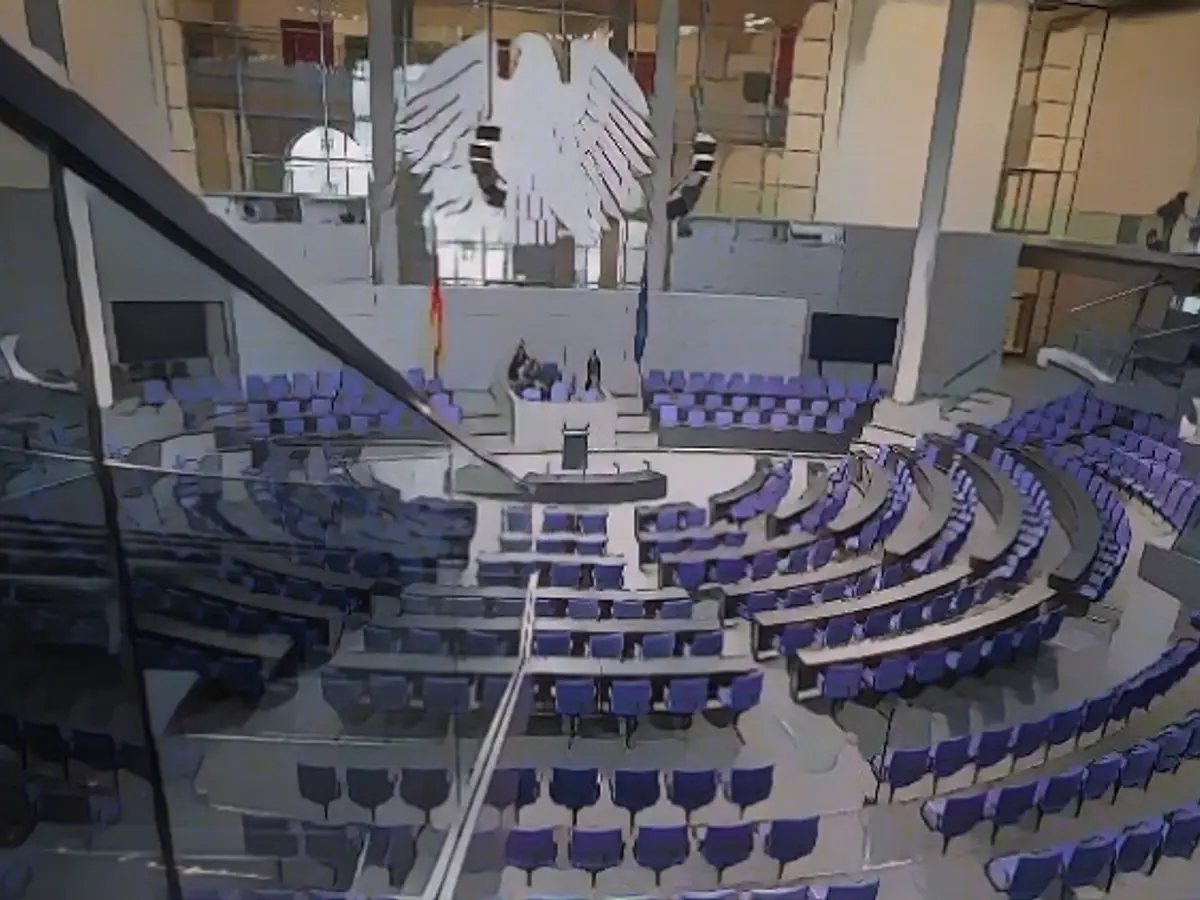Bundestag: A Second Chance for Berlin?
Here's the news you need to know: Berlin might be hosting another Bundestag election, as the Federal Constitutional Court is set to rule on the matter soon. The uproar began when Stephan Bröchler, who wasn't even the state returning officer at the time, noticed some serious issues hit the polls in 2021.
Gathering at the Polls
Remember Stephan Bröchler? He, just like many Berliners, lined up to cast his vote during the 2021 Bundestag election. But little did he know that this humble act would cause a stir at the Federal Constitutional Court. His issue: "serious organizational deficiencies" that he witnessed firsthand.
Stumbles and Setbacks
September 26, 2021, was a challenging day in Berlin. Amidst the Berlin Marathon and the ongoing coronavirus pandemic, long queues formed outside polling stations. The problem? Too few polling booths for so many citizens. Worse still, some votes were cast after the 6 p.m. deadline, ballot papers were incorrect or missing, and the election was interrupted for more than 100 minutes in a few places.
But the issues didn't stop there. Minors and individuals not entitled to vote ended up casting ballots for the Bundestag. It's a mess, as anyone would agree.
The Scope of the Redo
The SPD, Greens, and FDP - Berlin's dominant parties in power since the 2021 elections - voted to repeat the election in 327 of the capital's 2,256 constituencies and 104 of the 1,507 postal voting districts. The CDU/CSU parliamentary group argued that the Federal Returning Officer had contested elections in six constituencies—enough, they thought, to justify a repeat vote.
But the court has the final say. They'll make their decision based on their independent review of all documents and electoral errors. The scenarios range from a complete redo to no election at all. And, guess what? Even the question of whether a second vote would suffice is up for debate.
The Senate's Conundrum
The September 26 debacle raised some interesting questions that the Senate must tackle. Was casting a vote after 6 p.m.—with initial predictions about the election outcome—influential for voters? Does the chaos that ensued entail voting errors? Maybe those intimidating social media photos and videos of the long queues deterred other voters from casting their ballots.
The Senate must weigh the need to correct the election results against the interest of protecting the elected parliament. The pot is stirred, and only time will tell how the decision-makers will navigate these challenges.
A Timeline for Change
Assuming the court rules in favor of a re-run, the 60-day deadline must be met. Bröchler mentioned February 11, 2024, as a possible date—the last Sunday before school resumes in Berlin after winter break. But remember: no decisions have been made official yet.
The same electoral law that applied in 2021 will be used in the repeat elections, thanks to the recent Federal Constitutional Court ruling that the underlying electoral law reform from 2020 was valid.
The Impact on Berlin's Politics
A repeat election could shake up Berlin's political landscape. The Left Party is particularly at risk, as it just barely exceeded the electoral threshold in 2021. If ineligible voters play a significant role in the election results, the Left Party could lose all of its seats in Berlin.
Berlin's Third Time's a Charm?
It's worth noting that this isn't the first time Berlin has considered repeating an election due to performance issues. Previous concerns led to a repeat election for the Berlin House of Representatives in 2021.
Sources:
Enrichment Data:
The issue of repeating the Bundestag election in Berlin stems from several organizational problems that occurred during the initial voting process. Some electoral laws or voting procedures might have been violated, causing confusion and irregularities. This could include issues with voter eligibility, registration, management of polling stations, candidate nominations, and electoral district boundaries. The Federal Constitutional Court will make the final decision based on its independent review of the situation.








